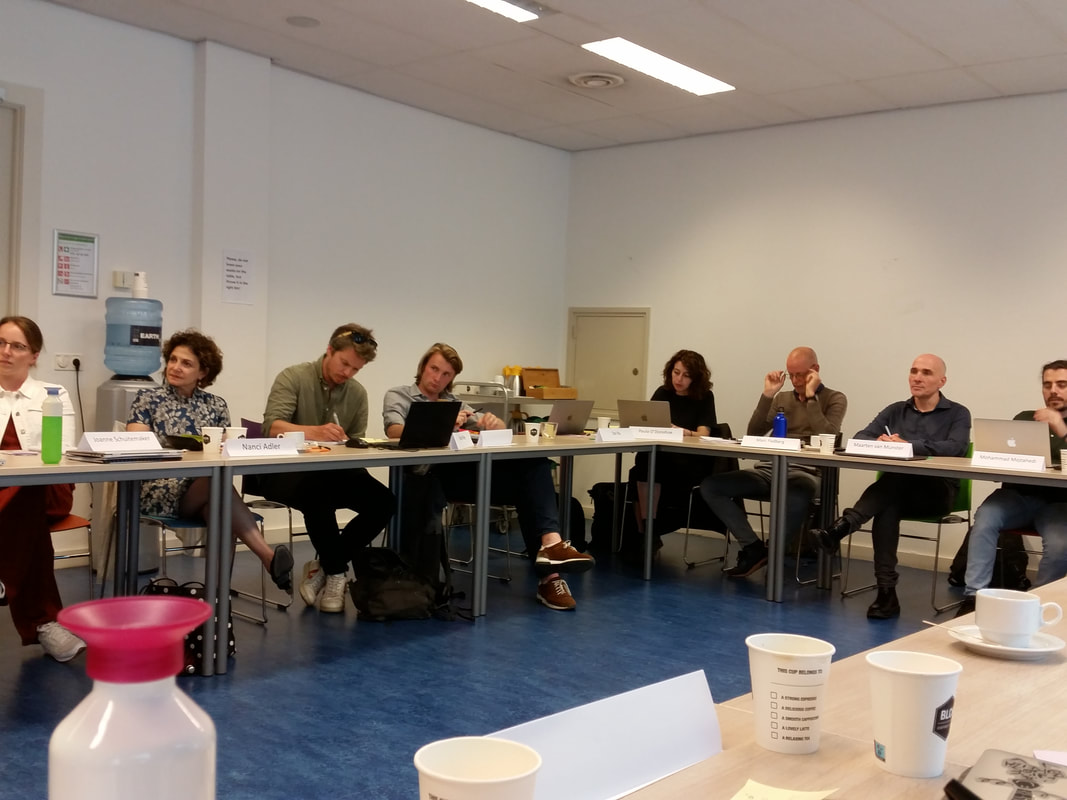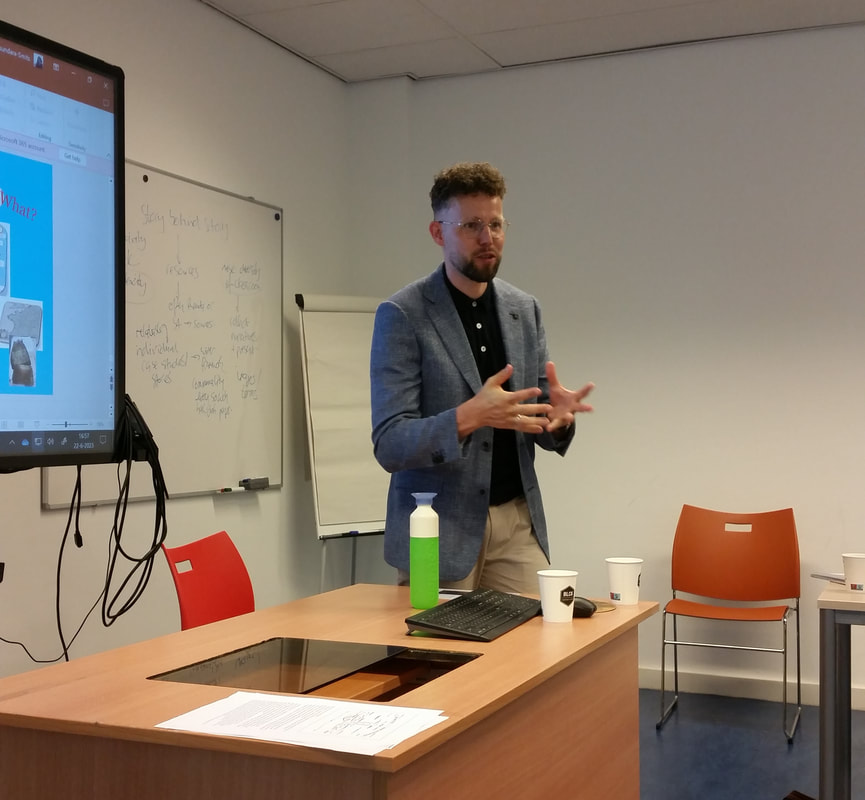|
On 22 June, our team organised a workshop in collaboration with the International Institute of Social Studies (ISS) in The Hague. We gathered historians and practitioners of transitional justice to discuss past and present transitional justice strategies. Our first aim was to better understand how we can evaluate the successes and failures of transitional justice. The second objective of the workshop was achieved in the last session, where we brainstormed about best practices to teach transitional justice to secondary school students – this will be the public outreach component of our project. To do so, we invited two experts at applying science in classrooms. Participants at the workshop. Photo: Rosanne Baars. In the day’s first session, three historians discussed transitional justice strategies used in the past and reflected on what we could learn from them. Nanci Adler (NIOD) opened the session with a presentation of failed transitional justice after the collapse of Soviet Russia: the new regime did not prosecute the crimes committed during the Stalinist era. Her case study led her to conclude that cultures of repression persist long after the oppressors are removed. In other words, the legacy of conflict and an oppressive regime, and of those responsible for the abuses, still exert power over the post-conflict society. Berber Bevernage (Ghent University) continued the session with a presentation on the commission of inquiries set up by King Leopold II of Belgium in 1904. This public enquiry, not unlike our modern-day truth commissions, was to look into the atrocities committed during Leopold’s personal rule over Congo. Bevernage called the commission a “successful failure”, which led to a discussion of how we should evaluate successes and failures, and how perceptions of success may evolve depending on a short-term or long-term evaluation. Sherilyn Bouyer (University of Groningen) concluded the session with her case study: the bipartisan courts set up by France in the aftermath of the French Wars of Religion (1598). She assessed how the historical example of the bipartisan courts can inform today’s scholarship of transitional justice, especially when it comes to evaluating the long-term performance of transitional justice mechanisms. After a well-deserved lunch break, the second session welcomed experts in the field of transitional justice, who discussed more recent case studies. The aim was to address the burden of memory in transitional justice practices. Based on a case study of Sri Lanka, Shyamika Jayasundara (ISS) raised several important issues. She discussed the different scales of transitional justice – the “small” daily justices and the top-down justice of the UN – and addressed the coloniality in transitional justice enterprises. Jayasundara also warned that communities may hold very different perceptions of time as well as memories of conflict, which means that notions of moving forward are not uniform across societies. Transitional justice may not be a linear process, but can also follow a circular rhythm. Niké Wentholt (University of Humanities) followed with a presentation of the current project she is part of, “Dialogics of Justice”. Presenting cases of petitioners seeking historical justice through civil proceedings in Dutch courts, she discussed how the law could be mobilised to bring stories of victims to light and legitimise their truths. Courts are thus a forum where historical narratives are created, and where memories are mobilised. Marc Padberg, founder of Deep Dialogues, concluded the session. Specialised in mediating collectively traumatised environments in a variety of settings, Padberg told the audience how the practices he used to discuss and address trauma in group sessions. Notably, he suggested different conditions required for collective healing. The day’s last session was divided in two parts. First, Paula O’Donohoe (Euroclio) and Joanne Schuitemaker (Scholierenacademie Groningen) represented institutions specialised in designing interactive and engaging history lessons for different age groups. Euroclio specifically specialises in offering guidance for teachers who are educating students about difficult pasts, such as the Holocaust. In the second part of the session, we asked all attendees to think of best teaching practices to educate children about conflict, peace, transitional justice strategies, and the burden of memory in post-conflict narratives. Our team gathered ideas and suggestions which will be put to good use when we prepare a lesson program on past transitional justice strategies, to be used by secondary school students. PI David van der Linden concludes the day. Photo: Rosanne Baars. We went home with many new thoughts, questions, and ideas for the continuation of our project. Discussing the state of the field of transitional justice, the successes and failures of implemented strategies, and the burden of memory has been hugely beneficial. One of the main takeaways of the workshop was the focus on local communities and the different impact transitional justice strategies can have on these communities. The main question remains how the impact and meaning of transitional justice evolves across generations – which is precisely what our project aims to investigate. – by Sherilyn Bouyer
0 Comments
Your comment will be posted after it is approved.
Leave a Reply. |
Blog
Welcome to our blog – stay tuned for regular updates on our project. Archives
February 2024
Categories |


 RSS Feed
RSS Feed
